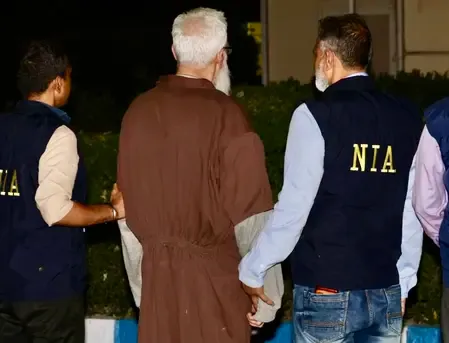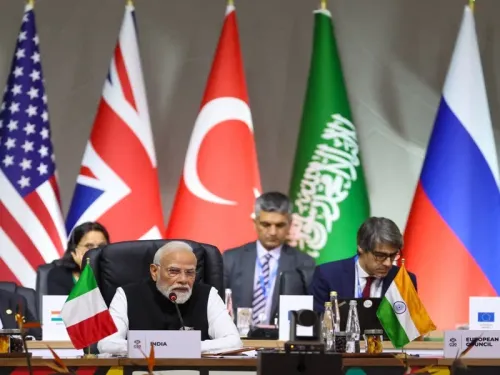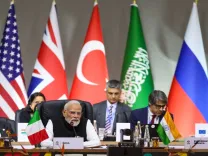India Asserts Pakistan's Global Terrorism Image Remains Unchanged

Synopsis
Key Takeaways
- India condemns Pakistan’s attempts to dissociate from Rana.
- Rana's extradition highlights Pakistan’s need to act against terrorists.
- Rana associated with ISI and major terrorist groups.
- 2008 Mumbai attacks resulted in 166 deaths.
- Pakistan's global reputation as a terrorism hub persists.
New Delhi, April 17 (NationPress) Criticizing Islamabad's efforts to dissociate itself from Tahawwur Hussain Rana, the architect of the horrific 26/11 Mumbai terror attacks, India declared on Thursday that regardless of Pakistan's attempts, its status as the epicenter of global terrorism will remain intact.
Following Rana's successful extradition from the United States last week, the Pakistan Foreign Office (PFO) claimed that the perpetrator of the Mumbai attacks has not renewed his Pakistani-origin documentation for the past twenty years and should be regarded solely as a Canadian citizen.
"Pakistan might strive to change its narrative, but its image as the epicenter of global terrorism is unlikely to fade," remarked Randhir Jaiswal, spokesperson for the Ministry of External Affairs (MEA), during a regular press briefing on Thursday.
He further stated, "The extradition of Rana serves as a stark reminder to Pakistan that it must take action to bring to justice other individuals involved in the Mumbai terror attacks, whom it continues to protect."
Rana is suspected of having strong connections with Pakistan's Inter-Services Intelligence (ISI) and is alleged to have collaborated with David Coleman Headley, also known as Daood Gilani, as well as members of designated terrorist groups such as Lashkar-e-Taiba (LeT) and Harkat-ul-Jihadi Islami (HUJI), along with other co-conspirators based in Pakistan, to execute the catastrophic terror assaults in Mumbai in 2008, which resulted in the deaths of 166 individuals and left over 238 injured.
The accusations against the 64-year-old Rana encompass criminal conspiracy, waging war against India, murder, forgery, and violations of the Unlawful Activities Prevention Act (UAPA).
Confronted with renewed global disgrace, Pakistan began to make futile efforts to distance itself from Rana—who was convicted in the U.S. for his affiliations with Lashkar-e-Taiba—immediately following his extradition to India.
On the matter of Tahawwur Rana, Shafqat Ali Khan, spokesperson for the Pakistan Foreign Office (PFO), stated during a weekly press briefing in Islamabad on April 10, "We have communicated our stance regarding his Canadian nationality. According to our records, he has not even attempted to renew his Pakistani origin documents for the last two decades. I reaffirm this position."









